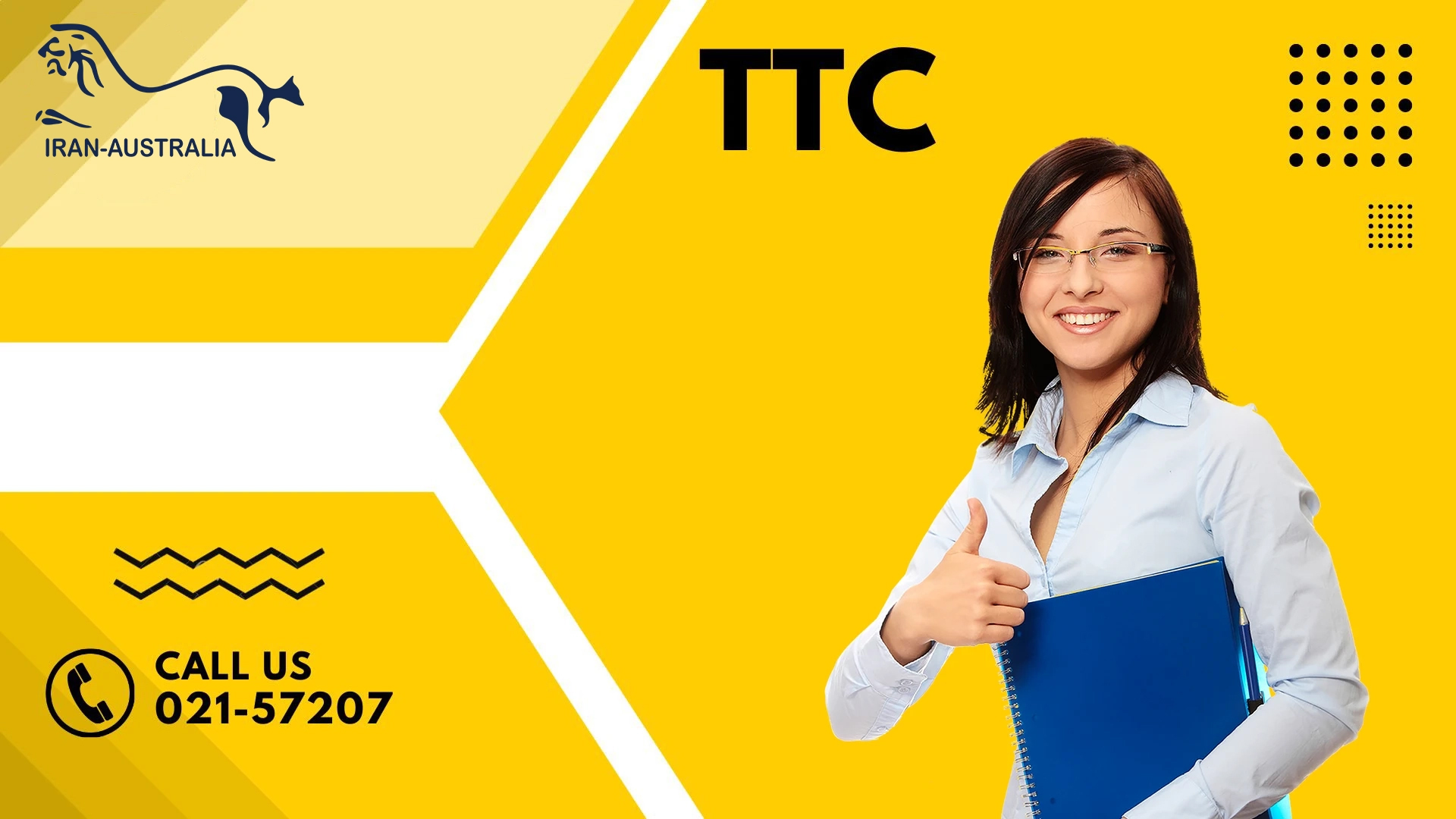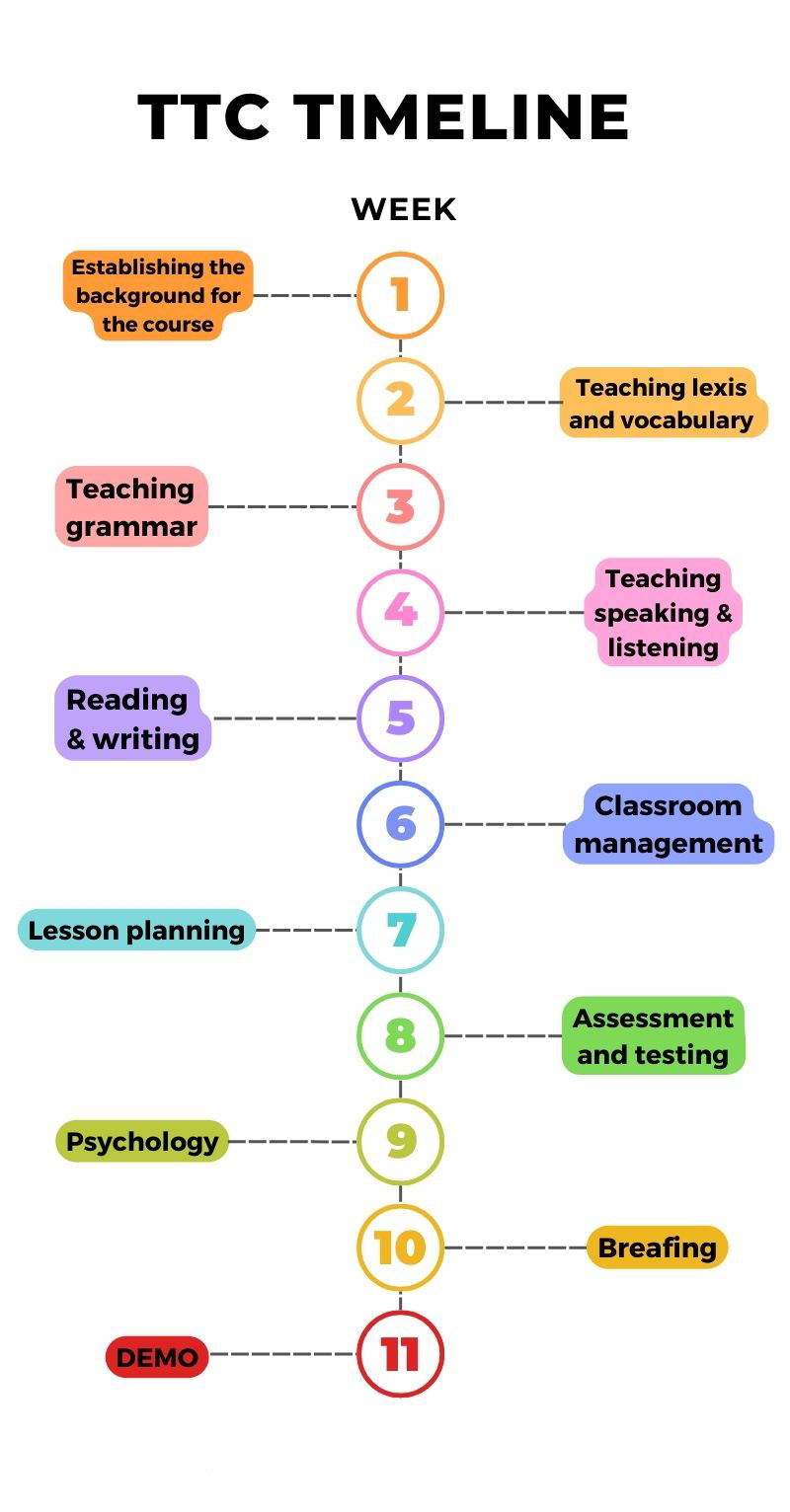What is a TTC Certificate? | Iran-Australia Language School

The TTC, or Teacher Training Course, is designed for individuals who want to acquire the necessary skills for teaching English or other languages.
Teaching English is one of those professions that, in addition to being relatively straightforward, also has high demand. On average, the monthly income of an English teacher ranges between 25 to 70 million Tomans. If individuals engage in private English tutoring, this income can even exceed these amounts.
However, mere knowledge of English is not sufficient for earning a stable income in this field. To teach English effectively, the TTC course is considered one of the most important and influential programs in teacher education, playing a crucial role in improving the quality of teaching and learning. This course, with its emphasis on principles, techniques, and advanced educational concepts, prepares participants for better teaching practices and for creating effective learning environments. This article explores the key aspects of the TTC program.
What is the TTC Course and Who is it Suitable For?
The TTC (Teacher Training Course) is a professional training program designed not only for teachers but also for anyone above the Pre-intermediate level who wishes to gain a deeper understanding of educational concepts. Based on the critical principle of Learner Autonomy—the ability to consciously engage with the act of learning—participants gain a broader vision that can be applied in any field of study.
Research shows that lessons taught by the students themselves tend to remain much more deeply ingrained in their minds. TTC equips participants with classroom management skills, principles and techniques of teaching, evaluation strategies, and methods to create effective learning environments.
The Iran-Australia Language School (operating under the direct supervision of the Ministry of Science), with over 25 years of experience, offers the most professional TTC courses in Iran. Later in this article, you will be able to compare Iran-Australia’s curriculum with that of other institutions.
Duration of the TTC Course
The length of the TTC program is usually variable and depends on the planning and the content covered. Courses may be offered as short-term programs (lasting about 1 to 3 months) or as longer-term programs (extending over 1 to 2 years).
At Iran-Australia Language School, TTC courses are generally delivered in 20 intensive sessions and organized into two-month terms.
Validity of the TTC Certificate
The certificate obtained from the TTC course carries international recognition and is considered an official teaching qualification in many countries. It prepares individuals for teaching in primary schools, secondary schools, universities, and higher education institutes.
Holders of a TTC certificate often find opportunities in both teaching and teacher training consultation.
⚠️ Important Note: While all educational certificates can technically be translated, only certificates endorsed by the Ministry of Science can be authenticated by the Ministry of Foreign Affairs. Such documents are considered valid for translation, migration, and equivalency procedures abroad.
Iran-Australia Language School is the only institution in Iran that issues fully translatable certificates with official authentication from the Ministry of Foreign Affairs.
Curriculum of the TTC Course
The TTC syllabus typically covers the fundamentals of teaching, effective instructional methods, classroom management, assessment, and communication skills. It also addresses the history of education, major teaching theories, educational psychology, and teacher personal development.
At Iran-Australia, TTC is structured into an 11-week program with a different focus each week. Each module is delivered by a dedicated expert.
Week 1 | COURSE BACKGROUND
Laying the foundation for understanding the course content.
- Exploration of major international teaching approaches.
- Introduction and discussion of key concepts in language teaching, such as SLA (Second Language Acquisition) and LAD (Language Acquisition Device).
- Examination of different teaching methodologies, including CLT (Communicative Language Teaching), their combinations, and customized applications for classrooms.
Week 2 | LEXIS & VOCABULARY
- Best practices for teaching vocabulary.
- Word families and memory systems in lexical retention.
- The role of vocabulary in communication and speech fluency.
Week 3 | GRAMMAR
- How to contextualize and conceptualize grammar rules.
- Comparative study of implicit and explicit grammar teaching methods, with emphasis on the inductive (implicit) approach of CLT.
- Special focus on TPRS (Teaching Proficiency through Reading and Storytelling) as a dynamic, real-life technique for teaching grammar.
Week 4 | SPEAKING & LISTENING
- Instructional strategies for developing speaking and listening skills.
- Fluency-building techniques, such as the 4-3-2 technique, and other memory-based games.
- Enhancing learner presence of mind and active participation.
Week 5 | READING & WRITING
- Approaches to reading general vs. specialized texts.
- The role of visual memory in reading comprehension and strategies for strengthening it.
- Writing skills: use of cohesive markers, structuring essays (introduction, body, conclusion, and title).
- Practice with skimming and scanning techniques.
Week 6 | CLASSROOM MANAGEMENT
- Time and syllabus management.
- Use of mind maps, effective PowerPoints, and psychological classroom control strategies.
- The ultimate goal: ensuring learning outcomes are met within the given timeframe.

Week 7 | TESTING & ASSESSMENT
- Critical review of evaluation practices.
- Avoiding over-reliance on final exams that damage learner confidence.
- Study of modern assessment methods, especially Formative Assessment.
Week 8 | PSYCHOLOGY of Language
- Understanding learners’ mental models.
- Motivation, encouragement, and psychological strategies for sustaining learner engagement.
- Designing personalized teaching strategies.
- Delivered directly by Dr. Mohsen Alikhani, CEO and founder of Iran-Australia Language School.
Week 9 | BRIEFING
- Consolidation and recap of all previously covered modules.
Week 10 | DEMO
- A comprehensive teaching demo and exam for participants.
- Successful candidates qualify for teaching positions not only at Iran-Australia but also at other institutions.
- Those who do not pass may retake the demo after further preparation.
- Iran-Australia uniquely offers scholarships to the top TTC graduates for direct teaching positions at the institute.
Cost of the TTC Course
The cost of TTC programs varies depending on factors such as location, duration, level (basic or advanced), and institutional policies.
Some TTC courses may be free, though hidden costs (e.g., books and resources) might apply. Discounts or scholarships are sometimes available for students and faculty members.
At Iran-Australia, distinguished TTC graduates are offered full scholarships and invited to collaborate with the institute after completing the course.
Conclusion and Benefits of Attending TTC
The TTC program is widely recognized as a key step in teacher education. By enhancing teaching skills and equipping educators to create more effective learning environments, TTC significantly contributes to improving educational quality.
Ultimately, the global recognition of this certificate ensures that those who complete the TTC successfully are regarded as professional, competent, and influential teachers within society.






